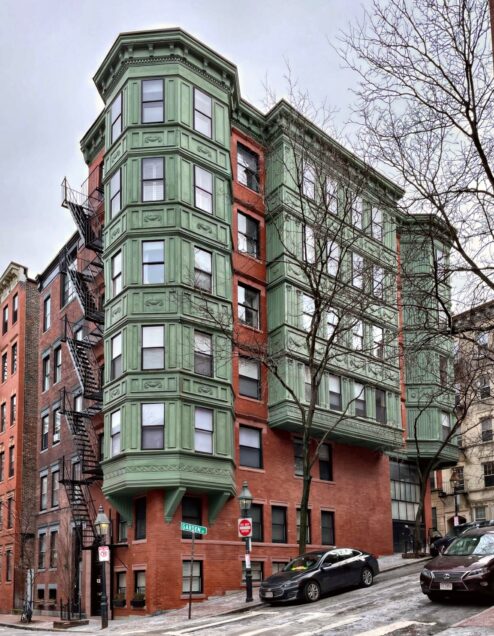Massachusetts Broker’s Fees: Reasonable Service or Market Manipulation?
In 2023 Massachusetts established the Executive Office of Housing and Livable Communities with an eye toward creating more housing in the state, which, like many across the country, is suffering a housing shortage. Some estimates suggest that Massachusetts will require between 125,000-200,000 additional housing units by the end of the decade. Various proposals are currently being considered as how to best spur the creation of new homes. The eventual solution will not be a single provision but likely many policy amalgams from various sectors. One proposal currently before the Joint Committee on Housing is Senator James B. Eldridge’s bill, An Act Enabling Local Options for Tenant Protections (Bill S. 872). One of the more quietly influential provisions in the bill, Section 8(g),[i] should be amended to be mandatory across the state, rather than allowing municipalities to opt into the provision and the language regarding should be changed to prohibit the business from charging tenants a fee. Any of the various similar bills that the committee is considering should adopt Section 8’s amended language.
Section 8(g) could alone reduce the cost of relocating to a new apartment by almost 20%, greatly increasing the mobility of Massachusetts tenants, and concomitantly, increasing the competitive demand for more, new housing units. The bill allows municipalities, to prohibit tenant-paid broker fees. Currently, tenants relocating in the Commonwealth may be required to provide first month’s rent, last month’s rent, a security deposit, and a broker’s fee at signing. Security deposits and broker’s fees are traditionally tied to the price of the housing unit and often are equivalent to one month’s rent. The median rental price for a one-bedroom apartment in Boston (certainly the state’s most expensive large housing market) is above $2,900, meaning that a renter must find $11,600 to move—likely before they’ve received their previous security deposit back.
The remainder of the bill provides for municipalities to adopt, should they so choose, rent stabilization regulations, standards for just cause eviction protection, condominium conversion ordinances, prohibitions on immediate rent increases in response to the bill, anti-gentrification displacement protections, and regulations of fees. Each provision has its merits and deserves its own full analysis not available in this article.
While the bill before the Housing Committee allows for different municipalities to adopt different policies, the state’s goal of new housing would be better served by prohibiting the practice of broker’s fees. In the modern housing market, tenants are often looking for units through online platforms and only being connected with brokers after inquiring into specific properties. However, nothing prevents multiple brokers from presenting the same listing because landlords can provide their listing to multiple brokers. Under such a model prospective tenants must pay the vendors that their landlord contracted with, making renters captive consumers, which distorts natural market forces and contradicts the needs of the broader housing market and tenants’ interests.
Other cities and states have recently tried to put forward similar provisions to varying results. Often such proposals face significant pushback from broker-related interest groups. The housing market inefficiency is a case study in the challenge of making reforms in circumstances of concentrated interests and diffuse costs. While renters may feel aggrieved about their new apartment costs, they likely only face the additional expense no more frequently than once per year. Meanwhile, brokers reap substantial benefit from a captive market and thus have every incentive to ensure no progress or changes are made to their outdated role in a modern market. The housing shortage allows landlords to deflect the cost onto tenants because tenants have so little choice in the current shortage; thus, no competitive price pressure, by either landlords or tenants, are exerted on brokers to provide competitive fees or better services.
 Broker groups have suggested that prohibitions on tenant-paid fees will increase rents by requiring landlords to cover the costs. They are likely correct; though it is likely of little consequence. Assuming that the one-month’s-rent broker fee is a competitively derived price for services rendered and assuming that brokers are actually required in modern apartment leasing (two generous assumptions): if a landlord is instead required to pay the $2,900 broker fee for a broker finding a tenant for a median one-bedroom Boston apartment, we could expect that they would raise the rent of the apartment by as much as $247.44 (spreading the $2,900 expense with 5% annualized interest over 12 monthly payments), an 8.5% increase. While an 8.5% increase in rent sounds substantial, (all assumptions holding constant) the tenant’s housing costs over the same first twelve months has increased only 0.002% while the cost of relocating has decreased by 18.6%. The substantial reduction in cost to relocate to a new apartment (which, albeit, doesn’t include moving expenses, i.e. boxes, truck rental, moving company, favors and pizzas for friends) increases tenants’ ability to more successfully exert their demand force as consumers, which requires the market to respond proportionately, through a reduction in rental costs or an increase in the quality or quantity of housing.
Broker groups have suggested that prohibitions on tenant-paid fees will increase rents by requiring landlords to cover the costs. They are likely correct; though it is likely of little consequence. Assuming that the one-month’s-rent broker fee is a competitively derived price for services rendered and assuming that brokers are actually required in modern apartment leasing (two generous assumptions): if a landlord is instead required to pay the $2,900 broker fee for a broker finding a tenant for a median one-bedroom Boston apartment, we could expect that they would raise the rent of the apartment by as much as $247.44 (spreading the $2,900 expense with 5% annualized interest over 12 monthly payments), an 8.5% increase. While an 8.5% increase in rent sounds substantial, (all assumptions holding constant) the tenant’s housing costs over the same first twelve months has increased only 0.002% while the cost of relocating has decreased by 18.6%. The substantial reduction in cost to relocate to a new apartment (which, albeit, doesn’t include moving expenses, i.e. boxes, truck rental, moving company, favors and pizzas for friends) increases tenants’ ability to more successfully exert their demand force as consumers, which requires the market to respond proportionately, through a reduction in rental costs or an increase in the quality or quantity of housing.
The flaw in such an analysis is the omission of any future years’ rents based off the initial absorption of the broker fee. That is to say, even assuming the rent does not get raised after one year, the tenants will be paying that additional $247.44 each month of every year after the first. So over two years the housing costs would increase by 4.2%. It is worth noting however, that the two listed assumptions are not the legal reality in a number of competing states. Accordingly, any such reactionary rise in rent prices is not a given, and certainly not an increase of 8.5% as discussed above. Additionally, such a calculus does not consider the prohibition on immediate rent increases elsewhere in Senator Eldridge’s bill. Nor does it account for other provisions not yet proposed. For instance, California does not allow landlords to request or accept last month’s rent, and the justification for continuing to require Massachusetts residents to makes increasingly little sense in the present shortage.
The current fee-shifting model onto tenants provides perverse and inefficient market incentives for the actors in the field. With inadequate housing stocks, landlords are able to defer screening and application costs onto brokers and are not incentivized to make applying more efficient for tenants. Nor is there substantial incentive to add to or improve the available housing stock. Brokers, because there are is no expectation of exclusivity, have no increasing marginal interest in providing additional efforts to find tenants as another broker may fill a vacancy before they can, especially as most tenants locate apartments through non-broker-affiliated online platforms in the modern market. Nor are brokers incentivized to provide competitive fees as the industry has agreed upon the equivalent of one month’s rent, the price-fixing characteristic central to the economic definition of a cartel.
Meanwhile, throughout the process, tenants have limited selection and face rental prices inflated by the squeeze of the housing shortage. Even tenants who don’t move are harried by the practice as sizable year over year rent increases are unavoidable because of the exclusionary capital required to move elsewhere. Currently, to avoid a rent increase and move requires having on-hand the equivalent of four month’s rent. Which is a cruel absurdity given that 44.5% of households in the Greater Boston area in 2022 were cost burdened according to the Boston Foundation’s Greater Boston Housing Report Card, that is spending more than 30% of their income on rent. The same report showed that nearly half of those cost burdened, 22.7% of households in the Greater Boston area, are severely cost burdened, spending more than 50% of their income on rent. To bind families in a Catch-22 that they cannot seek less expensive housing unless they save the equivalent of four months rent while they are currently paying more than half of their income towards their current rent leaves countless Massachusetts residents teetering at the edge of housing insecurity.
Any adjustment to the current fee scheme, let alone a blanket prohibition on the practice, will activate lobbying efforts from the Massachusetts Association of Realtors, whose End of Session Legal Update in 2022 noted that they “successfully blocked rent control, eviction moratoria, [and] broker fee shifting….” Accordingly, any successful legislation will need to mobilize tenant organizations and various community grassroots organizations to advocate on behalf of lowering relocation prices and diffusing the benefit.
Massachusetts’ housing shortage will require the efforts of policy makers, stakeholders, and community members. The one thing that we can be confident won’t solve the state’s housing shortcomings is not altering the forces that created the problem. The current fee scheme operates as a state-sanctioned cartel that makes relocating markedly more difficult and thus suppresses proper demand and supply influences, further distorting the housing market in the Commonwealth. While it is not a panacea, tenant-paid broker fees should be consigned to the curb with the rest of waste.
[i] “(g) In addition to the powers granted to a city or town in this section and notwithstanding section 87DDD½ of chapter 112, a city or town may by local charter provision, ordinance or by law regulate, limit or prohibit the business of finding dwelling accommodations for a fee.”
 Michael St. Germain anticipates graduating from Boston University School of Law in May 2025.
Michael St. Germain anticipates graduating from Boston University School of Law in May 2025.

